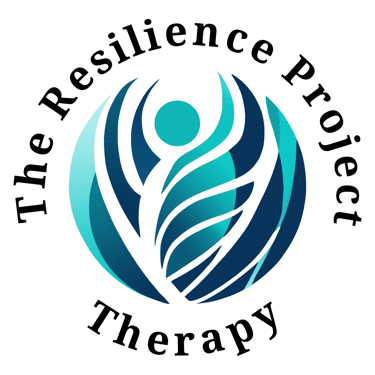Living a Valued Life with OCD: How ACT Can Help
Learn how combining exposure therapy and acceptance strategies can empower you to break free from OCD.
Christian Gray Hering, LCSW
3/3/20243 min read


Obsessive-compulsive disorder (OCD) can feel overwhelming. Intrusive thoughts, relentless urges, and the constant need for compulsions can steal joy and control from daily life. While therapy remains crucial, traditional approaches, like exposure response prevention (ERP), often focus on directly challenging or suppressing intrusive thoughts. However, what if there's another way? Enter Acceptance and Commitment Therapy (ACT).
ACT: Embracing What Is, Moving Towards What Matters
ACT isn't about "fixing" your thoughts or feelings. Instead, it focuses on psychological flexibility: the ability to accept what is happening within you (thoughts, emotions) while directing your energy towards living a life aligned with your values. In the context of OCD, this means acknowledging the presence of your obsessions and compulsions without necessarily attaching judgment or meaning to them. This shift empowers you to choose how you respond to your internal experiences rather than feeling controlled by them.
Keys to Unlocking Flexibility with ACT for OCD:
ACT offers a toolbox of skills to combat the rigid control patterns that often define OCD. Here are a few key approaches:
1. Defusion: Imagine your thoughts as passing clouds in the sky. You can't control the clouds, but you can choose to observe them objectively without getting caught in the storm. Defusion techniques aim to separate yourself from your thoughts. This can involve:
Observing: Notice your thoughts without judgment. Label them as "having the thought" rather than "being" the thought.
Describing: Use descriptive language to acknowledge the thought without attaching meaning. E.g., "I'm noticing the thought of needing to clean again."
Metaphors: Use metaphors to visualize the distance between you and your thoughts.
2. Acceptance: Trying to push away unwanted thoughts often reinforces their power. ACT encourages acceptance of your internal experiences, both the pleasant and the unpleasant. This doesn't mean condoning the thoughts or finding them enjoyable, but rather acknowledging their presence without engaging in a struggle against them. Acceptance exercises can involve:
Mindfulness practices: Focus on the present moment using techniques like breathwork or guided meditation.
Letting go: Allow thoughts and feelings to come and go without trying to control or suppress them.
3. Values: What truly matters to you in life? Is it connection, creativity, or personal growth? Identifying your core values serves as a compass for your life's journey. When faced with an obsession, ask yourself: does engaging in this behavior align with my values?
4. Committed Action: Once you've identified your values, ACT encourages taking committed action towards them. This translates to engaging in behaviors that align with your values despite the presence of OCD symptoms. For instance, if your value is spending time with loved ones, you might choose to socialize even if intrusive thoughts arise.
How ACT and ERP Work Together:
While ACT focuses on psychological flexibility and acceptance, ERP (Exposure Response Prevention) directly addresses the fear and anxiety associated with obsessions. It involves gradually exposing yourself to situations that trigger your obsessions and resisting the urge to engage in compulsions. This allows you to learn that the feared outcome won't happen, reducing the anxiety and the need for compulsions over time.
Think of ACT as the foundation that builds your psychological resilience. It equips you with the skills to manage your thoughts and emotions effectively. ERP then becomes the action plan that utilizes these skills. By confronting your fears through exposure, you put ACT's principles into practice, strengthening your ability to live a valued life despite OCD symptoms.
Living a Richer Life with OCD:
ACT does not promise to eliminate OCD symptoms entirely. Instead, it aims to empower you to live a richer, more meaningful life in the presence of those symptoms. By cultivating psychological flexibility, you can learn to accept your inner experiences without being controlled by them. This allows you to choose behaviors and actions that reflect what truly matters to you, ultimately leading to a life less ruled by OCD and more guided by your values.
It's important to remember: ACT is a collaborative process best undertaken with a qualified therapist experienced in ACT for OCD. This therapist can guide you in implementing these strategies and tailoring them to your specific needs and experiences. Through commitment and practice, ACT can empower you to navigate the challenges of OCD and live a life filled with purpose and meaning.
Source List:
International OCD Foundation. (n.d.). What is ACT? https://iocdf.org/special-interest-groups/act/
Twohig, J. P., Hayes, S. C., & Strosahl, K. D. (2007). **Acceptance and Commitment Therapy: The process and practice of mindful change (2nd ed.). Guilford Publications.
Hayes, S. C., Luoma, J. B., & Wilson, K. G. (2004). Acceptance and commitment therapy: An experiential approach to behavior change. Guilford Publications.
Villatte, J. L., Ladouceur, R., & Sullivan, G. P. (2014). The effectiveness of acceptance and commitment therapy in treating a case of obsessive compulsive disorder. Journal of Behavior Therapy and Experimental Psychiatry, 45(3), 420-427. https://www.ncbi.nlm.nih.gov/pmc/articles/PMC9139700/
The Resilience Project Therapy
Mailing
P.O. Box 832182
Richardson, TX 75083
Contacts








